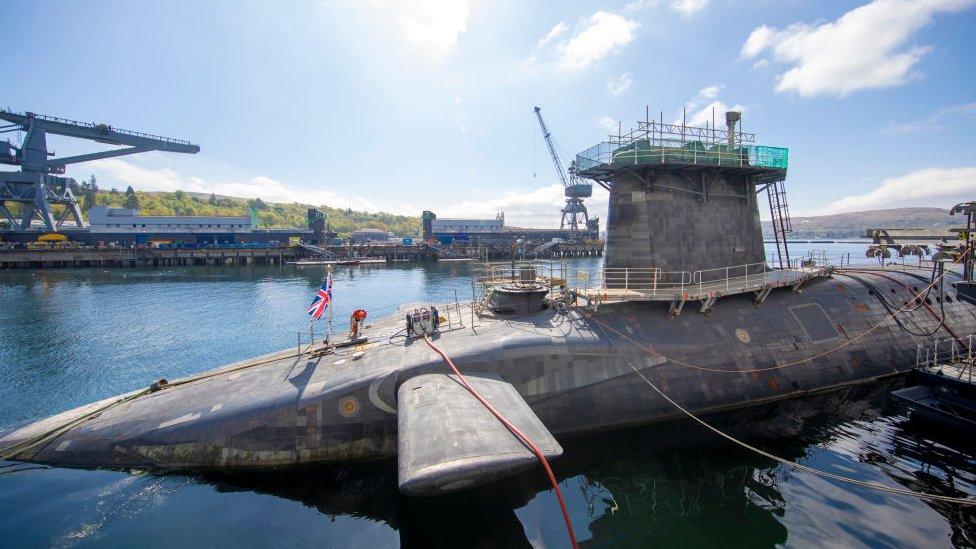Covid in Scotland: Outbreak at Faslane nuclear submarine base
- Published

The Royal Navy has confirmed a number of personnel at its main base in Scotland have tested positive for Covid-19.
The navy would not say how many people had tested positive in the outbreak at the Faslane base but it said those who had were under medical supervision.
A number of others are self-isolating.
NHS Highland said the outbreak was responsible for an increase in positive cases reported by the health board on Friday.
It added that the outbreak had been contained on the site.
HMNB Clyde, also known as Faslane, on Gare Loch in Argyll and Bute is the navy's base for nuclear submarines and hunter-killer submarines.
A Royal Navy spokeswoman said: "We can confirm that a number of personnel at HMNB Clyde have tested positive for Covid-19 and are under medical supervision.
"Personnel identified as having been in contact with those who have tested positive are self-isolating in line with established health guidelines."
No community spread
Scottish government statistics, external show there were 98 cases recorded in the NHS Highland region - which includes Argyll and Bute - in the past 24 hours.
That is the health board's biggest single day rise in cases since the pandemic began.
Meanwhile more local figures show there were 96 cases recorded in Argyll and Bute in the same period.
NHS Highland's director of public health, Dr Tim Allison, said the increase in cases was due to the Faslane outbreak, which was "contained" at the site.
Dr Allison said: "We understand that there are many interactions between this establishment and the local community.
"However, we would wish to emphasise that while there have been a small number of cases over recent months in people who work on the site and live locally, there are no cases in the wider community directly linked to this current outbreak.
"We also recognise that, over the last few weeks, the Helensburgh and Lomond locality has had a higher rate of infection than the rest of Argyll and Bute and we have been monitoring this closely."

